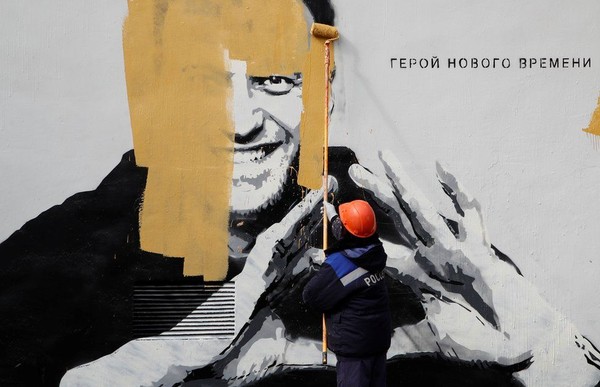The prominent Russian opposition leader Alexei Navalny made his first court appearance on April 29, following his weeks-long hunger strike protesting the lack of adequate medical care and treatment. The famous Kremlin critic appeared in court to appeal a lawsuit accusing him of defaming a Russian WWII veteran, a claim which he denies. Although his health seems to have deteriorated during imprisonment, Navalny characteristically directed strong words towards Russian president Vladimir Putin and his government, saying “the king is unclothed and the crown is slipping from his ears.”

Navalny is a politician and an anti-corruption campaigner who has made it his mission to expose the systematic network of corruption that runs in the Russian government. In the past couple of years, he has released a number of detailed video reports that target high government officials and Russian oligarchs. Navalny started as a political blogger but garnered widespread popularity after being one of the key leaders of the public demonstrations that followed the 2011 and 2012 Russian legislative and presidential elections, one of the largest mass protests the government has faced. He then ran for mayor of Moscow in 2013; however, just as his campaign was picking up steam, he was arrested by the police for charges of embezzlement. Following mass protests and demonstrations, he was released on bail but only managed to finish second in the mayoral elections. Navalny still continued to expose corruption and organize protests until he ran for the 2018 presidential elections against Putin. But his campaign was cut short as the government prevented him from running — citing an earlier embezzlement charge as an excuse.
In late 2020, Navalny was campaigning against Putin in Siberia when he was poisoned. He collapsed on the flight back from Siberia to Moscow, and was later sent to Berlin for treatment, where it was confirmed that he was poisoned by Novichok — a deadly nerve agent developed in the Soviet era. Navalny survived and despite threats of arrest upon arrival to Russia, he returned to Moscow where he was detained at the airport on accounts of violating his probationary period from one of his earlier convictions. Since then, Russia’s Investigative Committee has opened another case on Navalny.
While Navalny’s popularity mainly stems from his fight against the Kremlin, he has also made headlines for his xenophobic comments. In a video from 2007, Navalny equates immigrants with cockroaches that have to be “dealt with”. There are also videos of Navalny describing himself as an “unapologetic nationalist” who believes in the deportation of certain ethic groups, raising questions of how his beliefs are any different from those of Russian elites who turn a blind eye to racism in the country. He has also made homophobic remarks in several interviews. Human rights organization Amnesty International has revoked Navalny’s status of “prisoner of conscience” on accounts that he “may have amounted to advocacy of hatred that constitutes incitement to discrimination, violence or hostility”. Navalny is yet to retract his controversial comments.
Navalny has so far been handed jail sentences, placed under house arrest, and restricted from partaking in elections. However, the government’s current actions seem more stern than ever. On the same day of the court hearing, Russia’s financial monitoring agency added his anti-corruption foundation and campaign offices to the list of “extremist groups”. If approved by the court, it puts all Navalny’s organizations on equal ground with ISIS on paper. The move is meant to stifle not only Navalny but all of his supporters and sponsors. If it passes, any support for the movement, even simple things such as liking and sharing social media posts, may be charged as criminal offenses. People are becoming worried that any connection to Navalny’s groups, even the ones that existed before the law was passed, might come under scrutiny.
Despite Moscow’s attempts otherwise, Navalny is still an influential figure in Russian politics. However, amid less public exposure due to imprisonment, the resurfacing of his nationalist and xenophobic comments, and his organizations being labeled as extremist groups, it is yet to be seen whether he will still have a significant voice in the future.

